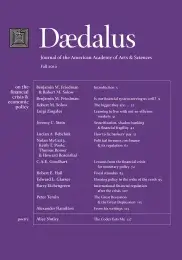How to fix bankers’ pay
The financial crisis has highlighted the importance of discouraging excessive risk-taking by financial firms. The extent to which firms take on risks can be expected to depend partly on their executives’ incentives. In the aftermath of the financial crisis, G20 leaders announced their commitment “to implement strong international compensation standards aimed at ending practices that lead to excessive risk-taking.”1 But how should bankers’ pay be fixed? The devil, as is often the case, is in the details.
Below I sketch some key principles for reforming bankers’ pay, drawing on my academic work2 as well as on written testimonies before the Financial Services Committee of the House of Representatives.3 I describe two distinct sources of risk-taking incentives: first, executives’ excessive focus on short-term results; and, second, their excessive focus on results for shareholders, which corresponds to a lack of incentives for executives to consider outcomes for other contributors of capital. I discuss how pay arrangements can be reformed to address each of these problems and conclude by examining the role that government should play in bringing about the needed reforms.
Standard pay arrangements have incentivized and rewarded short-term results. Jesse Fried and I warned about this problem and its consequences in our book Pay without Performance: The Unfulfilled Promise of Executive Compensation, published six years ago.4 Under the standard design of pay arrangements, executives have been able to cash out large amounts of compensation based on short-term results, which has provided executives with incentives to seek short-term gains even when doing so creates excessive risk of a later implosion.
Modern pay packages are largely performance-based, consisting of both equity-based compensation (such as options and restricted stock) and bonus compensation. Such provisions are intended to provide incentives for improved performance. In the past, however, these critical components of standard pay arrangements have also produced perverse incentives.
Bear Stearns and Lehman Brothers, the firms whose respective meltdowns ushered in the current financial crisis, are illustrative of the problem. Various observers, including New York Times and Wall Street Journal columnists,5 largely assumed that the wealth of these firms’ executives was wiped out, together with that of their firms. This “standard narrative” led commentators to dismiss the potential role of flawed pay arrangements in the firms’ risk-taking. Assuming that the executives’ wealth was wiped out alongside the shareholders’, these commentators inferred that the firms’ risktaking could not have been an upshot of deliberate choices produced by perverse incentives; rather, it must have been the result of the executives’ failure to perceive risks–or their hubris. Alternative pay structures, they argued, would not have made a difference.
. . .
